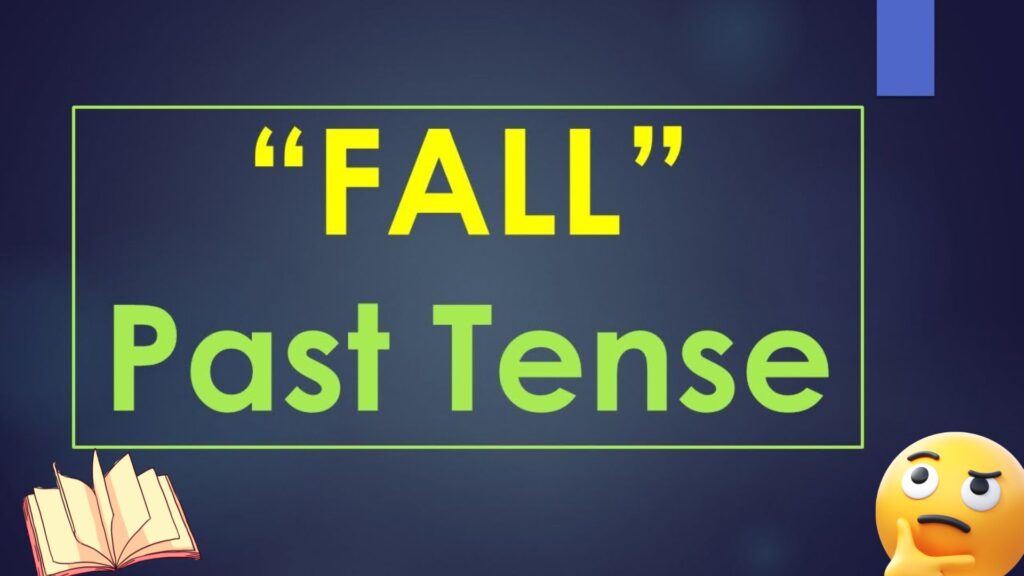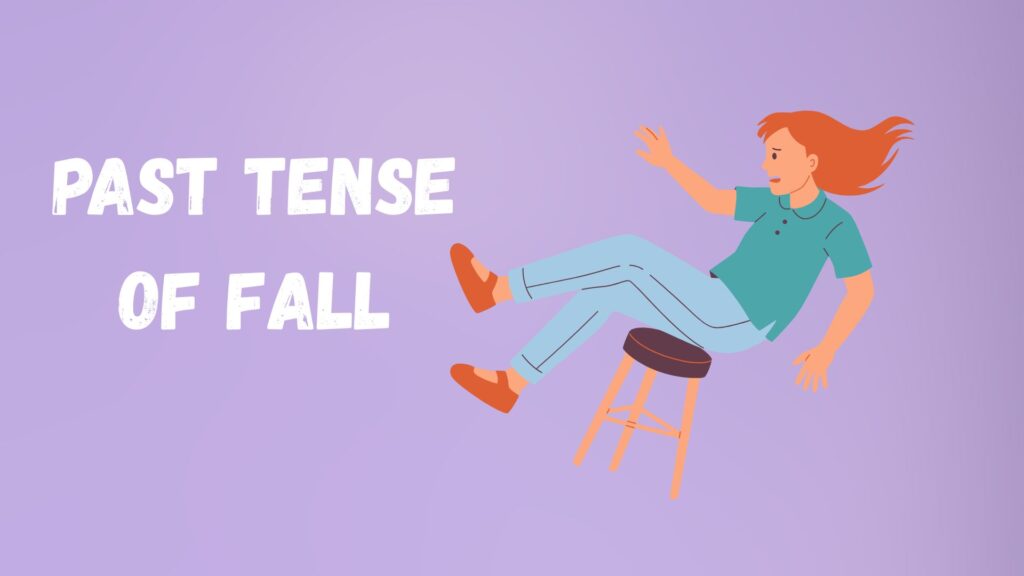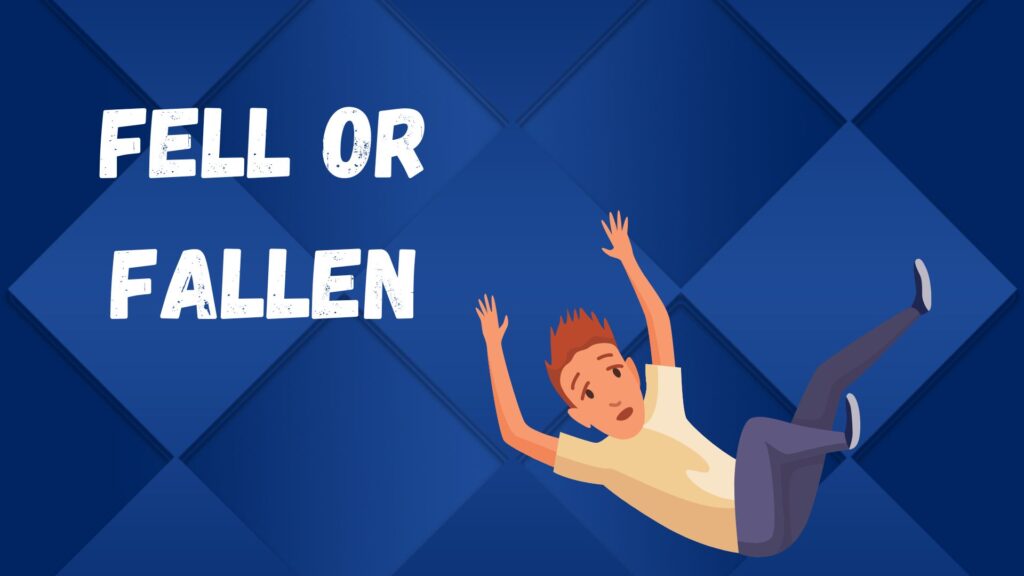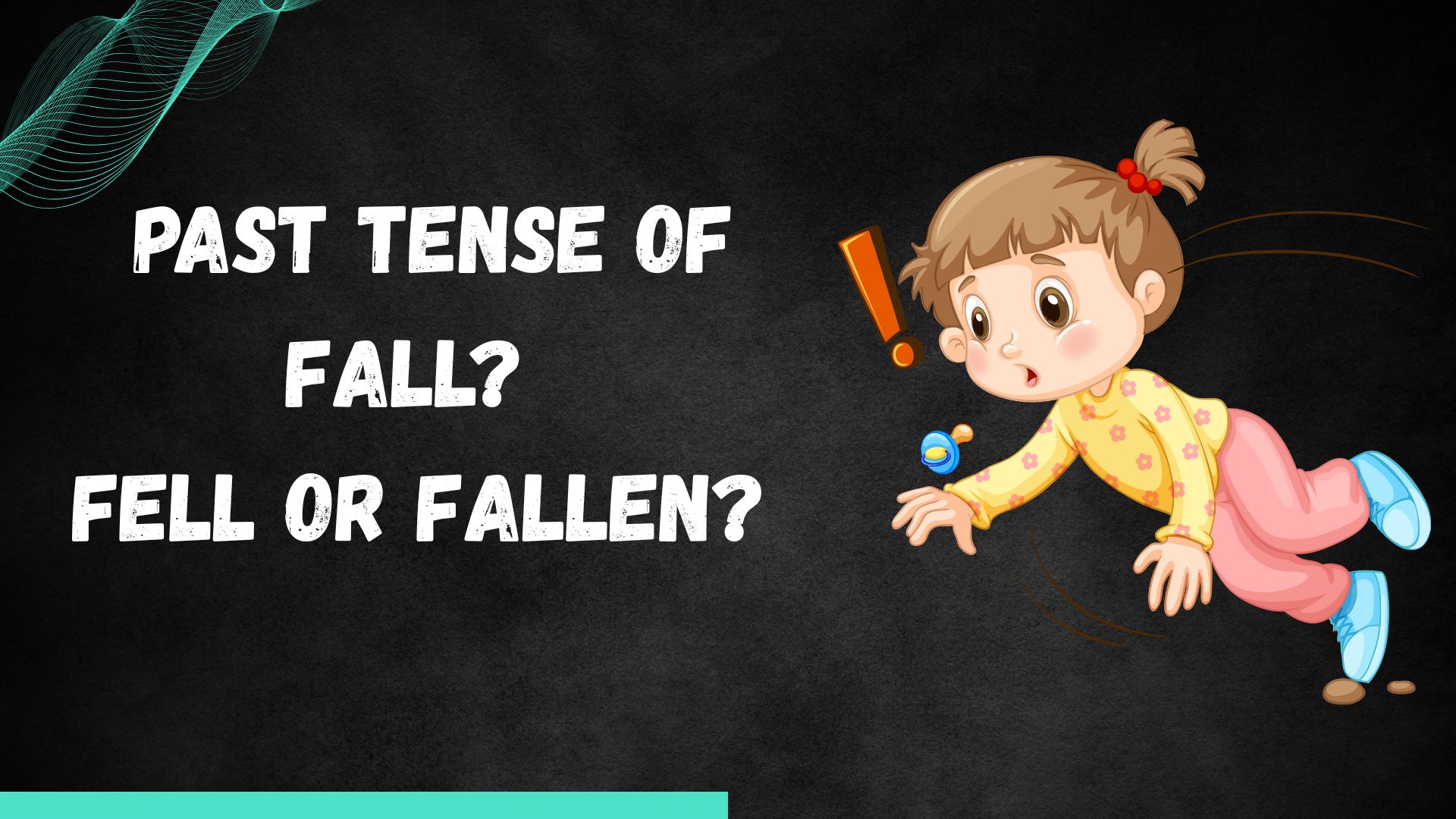The Past Tense of Fall
English verbs can trip people up especially irregular ones like “fall.” If you’ve ever paused mid-sentence wondering whether to use “fell” or “fallen,” you’re not alone. These two forms come from the same root verb, but they aren’t interchangeable. Each plays a specific role in English grammar, and misusing them can make your sentences feel awkward or even incorrect.
Let’s break it all down, explore the history, and most importantly look at examples that make it all click.
🧠 Fall, Fell, Fallen: The Basics

“Fall” is an irregular verb, which means it doesn’t follow the typical -ed pattern for the past tense. Instead, it changes form in unique ways depending on the tense:
| Tense | Verb Form |
|---|---|
| Present Tense | fall |
| Simple Past Tense | fell |
| Past Participle | fallen |
Here’s the full conjugation chart for “fall”:
- I fall (present)
- I fell (simple past)
- I have fallen (present perfect)
- I had fallen (past perfect)
- I will fall (future)
- I will have fallen (future perfect)
Each form serves a unique purpose in the flow of verb tenses. Get this right, and you’ll sound polished and natural.
📚 Etymological Roots: Why Is “Fall” So Irregular?
The verb “fall” comes from Old English feallan, which in turn derives from Proto-Germanic fallaną. It belongs to a category of verbs known as Class VII Strong Verbs a group that relied on vowel changes rather than added endings to indicate tense. That’s why we get “fall,” “fell,” and “fallen,” instead of “fall,” “falled,” and “falled.”
According to Etymology Online, the transition of vowel sounds across tenses (a pattern called ablaut) explains this shift in forms. This morphological irregularity in verbs is a common trait of many old Germanic-rooted words.
✍️ Using “Fell” – The Simple Past Tense of Fall

“Fell” is used when referring to a completed action in the past. It doesn’t require any helping (or auxiliary) verb.
✅ Examples:
- She fell off the swing yesterday.
- I fell asleep during the meeting.
- The snow fell heavily all night.
📧 Email Scenario Using “Fell”:
Subject: Incident Report from Yesterday
Hi Miranda,
Just a quick heads-up Michael fell on the icy stairs outside the loading dock. He’s fine now, but we might want to add a warning sign.
Thanks,
Jake
In this email, “fell” clearly marks a past event that’s complete. That’s why it works without needing any helper verb.
✅ Using “Fallen” – The Past Participle Form
“Fallen” is never used alone. It always requires a helper like “has,” “have,” or “had.” This makes it part of the perfect tenses, which show action linked to the present or another past moment.
🧠 Why use perfect tenses?
They indicate:
- A past action with relevance to the present
- A sequence of past events
- A completed action before another event
✅ Examples:
- She has fallen behind in her studies.
- The handle had fallen off before I arrived.
- By the time we got there, the tree had already fallen.
These all demonstrate how “fallen” reflects past action emphasis tied to contextual timing.
📧 Example of “Fallen” in a Work Email:
Subject: Conference Room Emergency
Hi Teresa,
A light fixture has fallen from the ceiling in Room 204. Luckily, no one was hurt, but we should have maintenance inspect the others too.
Best,
Nina
Using “has fallen” shows the event just happened and may still be relevant it’s not just about the past, it’s about the present implications.
🤔 Fell vs. Fallen: How to Tell Which One to Use

Let’s simplify the difference:
| Use “Fell” When… | Use “Fallen” When… |
|---|---|
| You’re describing a simple past event. | You’re using perfect tenses (have, has, had). |
| The verb stands alone. | It comes with a helper verb. |
| Time is specific or clearly past. | The action connects to another time or state. |
❌ Common Mistakes to Avoid
- ❌ She has fell asleep.
✔️ She has fallen asleep. - ❌ I fallen yesterday.
✔️ I fell yesterday.
This is the kind of incorrect past tense usage that’s easy to miss but sticks out when spoken.
📘 Grammar Tip: Recognizing Auxiliary Verb Usage
“Fallen” functions only when combined with an auxiliary verb like “have” or “had.” If you’re unsure, look for this structure:
Subject + have/has/had + fallen
If there’s no helper, “fell” is probably what you need.
📖 How to Use “Fall” in Perfect Continuous Tense
Want to describe an action that’s been ongoing?
Use “have been falling” (present perfect continuous) or “had been falling” (past perfect continuous).
Example:
- The prices have been falling for weeks.
- The leaves had been falling since early October.
This usage shows verb aspect and duration, not just a single drop, but a continuing descent.
🧩 How “Fall” Fits Into Broader Verb Conjugation in English
English verbs can be grouped based on regularity and auxiliary use. “Fall” ticks several boxes:
- It’s irregular
- Requires helping verbs in some tenses
- Shows temporal progression in language
This is why understanding the difference between fell and fallen isn’t just about memorization. It’s about knowing how English verbs evolve across time and structure.
📝 Practice Makes Perfect: Try These Sentences
Fill in the blank with the correct form fell or fallen:
- Yesterday, I ___ while carrying the groceries.
- The picture frame has ___ from the wall again.
- I think the ladder just ___ over.
- By the time we noticed, the price had ___ dramatically.
(Answers: 1. fell, 2. fallen, 3. fell, 4. fallen)
Use these as verb form exercises to reinforce your learning.
📂 Synonyms of Fall for Contextual Clarity
If “fall” feels repetitive, try these based on the context:
- Drop – He dropped his phone.
- Plummet – The stock price plummeted.
- Collapse – The chair collapsed under him.
- Tumble – She tumbled down the hill.
- Sink – The boat slowly sank.
Each of these adds flavor and helps avoid overuse.
🔁 Recap: Mastering Fall, Fell, and Fallen
Let’s tie it all together:
- “Fall” is present tense.
- “Fell” is simple past used alone.
- “Fallen” is the past participle needs a helping verb like have/has/had.
- Choose based on verb tense, sentence structure, and timing of the action.
- Use tools like conjugation charts, grammar rules for fall, and real examples to guide you.
🌳 Final Thought: It’s All About Timing
The next time you’re tempted to say “I have fell” pause. If you remember that “fallen” always comes with a helper, and “fell” stands solo, you’ll stay on solid ground.
Learning irregular verb forms (fall → fell → fallen) doesn’t have to feel like slipping on ice. With a few smart examples, a little history, and a bit of practice, you’ll be using them like a native.

